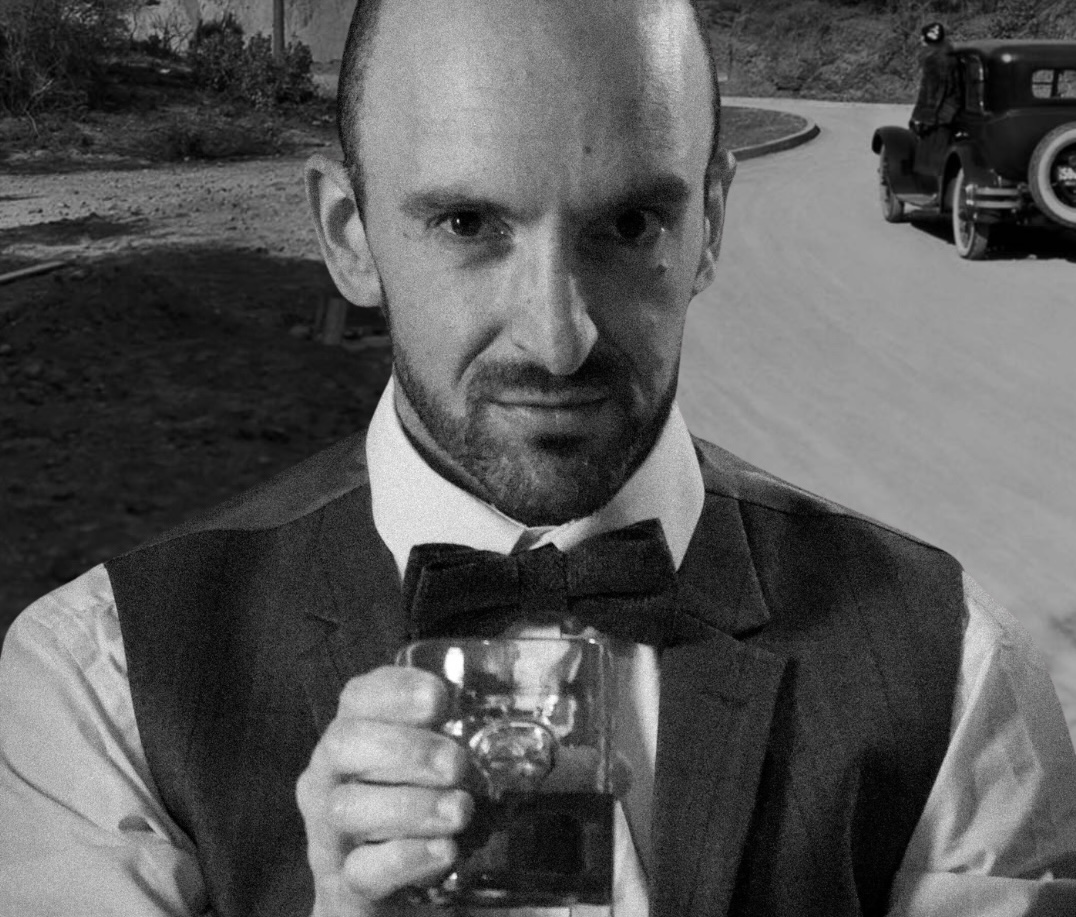In an atmospheric venue called the Cinema Room, with posters from real-life movies decorating the walls, solo storyteller Polis Loizou spins a sinister Hollywood yarn. He tells us his story is absolutely true… but he also tells us that “reality is up for grabs”, so I’ll leave you to decide exactly how much you believe him. If we take him at his word, we’re seeing a recreation of a recently-rediscovered film reel, footage that sheds new light on a notorious lost movie from almost a century ago.
We never actually see any film, but Loizou re-enacts what the antique audition tape shows: one side of a conversation between director Lazaro Parker, and a God-fearing young man from rural Ohio who’s come to LA in search of his fortune. There’s an obvious parallel to Harvey Weinstein – albeit that the fictional Parker seems to prefer men – and the ease with which Parker can impose his will on the country boy certainly underscores the storyline. But there’s a sense that something else must be happening too, a feeling which slowly and creepily builds as we learn about the mysterious accidents that have plagued the shoot. There’s occult imagery within the film. Might they have unleashed dark powers for real?
We only hear Parker’s side of the dialogue, but his lascivious commentary paints a picture of his interlocutor, and clever scripting leaves us in no doubt what the Ohio man says and feels. As a film director, Parker trades in emotion, perhaps above all in fear; he demands it from the aspiring young actor, and explains how he extracted it from his former leading man. A couple of indisputably historical Hollywood stories are woven in, drawing a picture of a city that’s paradise for the selected few but cruel towards those it’s discarded.
I admire what Loizou is doing here, drawing us into a world of shifting sand, where his present-day narration and the purported found footage create a single constructed reality. But for me, on this occasion, it doesn’t entirely come together. We’re told that Parker sometimes had to stop and change the film – explaining why there are scenes missing from the reconstruction – but rather than adding mystery, I found this just punctured the immersion. And the framing story, where Loizou is playing himself rather than Parker, comes a touch too close to an overt lecture explaining what I should make of it all.
And that’s a mistake – because it’s only in writing this review, as I’ve made the effort to think about it myself, that I’ve realised the themes are subtler and cleverer than I’d first understood. Perhaps the film camera, with its power to snip and edit reality, did unleash a new kind of horror on us all. It’s a troubling theme for a gently troubling show, which itself draws from many influences to stitch a disquieting patchwork of realities.


Comments